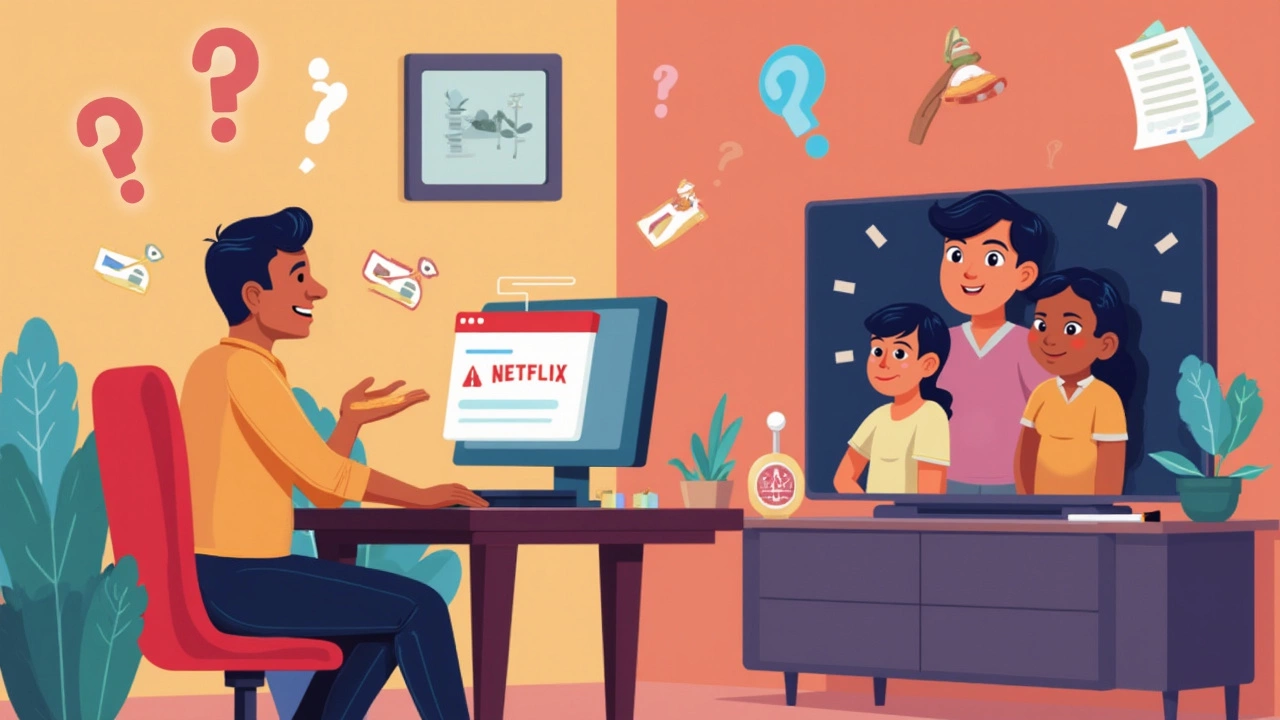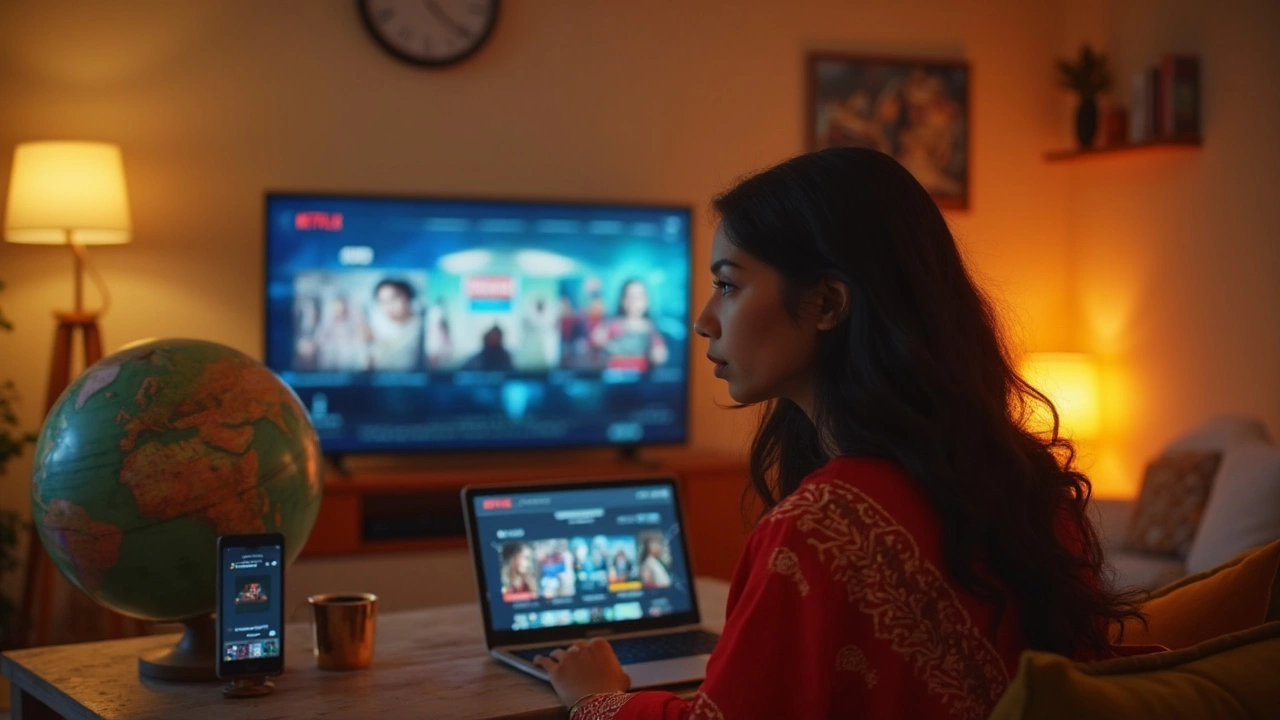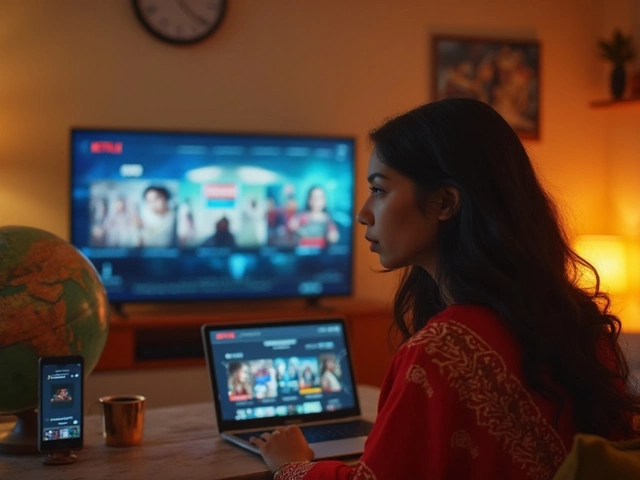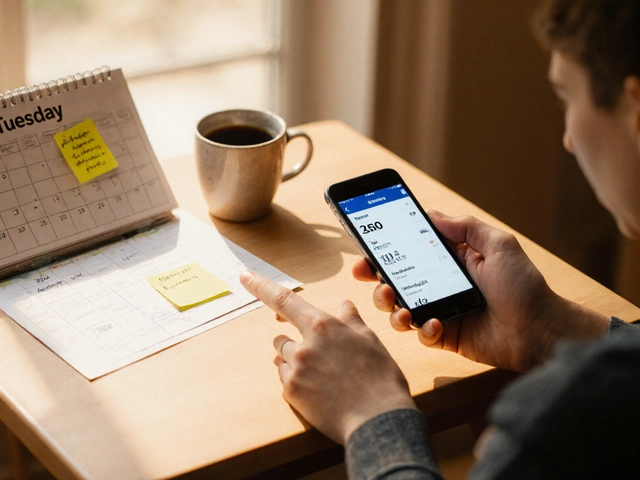Imagine finally finding that show everyone’s talking about, only to see, “This title isn’t available in your region.” Frustrating, right? So you grab a VPN and—like magic—you’re suddenly watching the latest episodes from a different country. But the nagging question slips in: is all this legal? Could you get into trouble just for wanting more content from Netflix?
The Laws Around Netflix and VPN Use
Let’s clear up the scary part right away: in most countries, just using a VPN isn’t illegal at all. VPNs (Virtual Private Networks) started as legit privacy tools for companies and people who wanted safer internet use, especially on public Wi-Fi or work computers. Nowadays, plenty of regular folks use them to protect personal data, avoid trackers, or just feel a bit less watched online. There’s nothing illegal about that in places like the U.S., UK, Canada, Australia, or most of Europe. VPNs are simply one of the many privacy tools out there, and millions of users rely on them for everything from banking to email security.
But things get tangled when you throw Netflix into the mix. Netflix itself doesn’t want you using a VPN. Not because VPNs are illegal, but because of its own agreements with movie and show studios. When Netflix buys rights to a show, those rights usually only cover certain countries. So Netflix promises the studios it will only let certain countries watch each show, and not everyone everywhere. Anyone using a VPN to dodge those rules makes Netflix’s life harder, and can even risk Netflix getting in trouble with its content partners.
Here’s the thing: Netflix’s Terms of Use specifically state you’re not supposed to “circumvent, remove, alter, deactivate, degrade or thwart any of the content protections” or use the service in ways outside their policies. That’s Netflix-speak for “don’t use a VPN to get around content blocks.” But breaking the Netflix rules is not the same as breaking the law. There’s a pretty big difference between violating some company’s agreement and actually committing a crime.
Still, every country handles these things differently. In China, Russia, and Iran, VPNs can be controlled tightly, or even banned. In those places, using a VPN for vpn for netflix streaming could mean legal problems depending on local rules—sometimes big ones. But that’s rare for most regions where Netflix is popular. The risk isn’t about the police knocking at your door, but more about whether Netflix might lock or ban your account if they catch on.

What Netflix Does When You Use a VPN
Here’s a juicy behind-the-scenes fact: Netflix has spent millions on VPN detection. They scan for VPN servers, blacklist known VPN IP addresses, and keep updating this list. According to a 2024 Statista survey, about 17% of Netflix subscribers worldwide admitted to trying a VPN for streaming at least once. That’s a lot of people, and the number keeps going up every year as folks want to watch shows from different countries. But here's a fun twist—Netflix doesn’t automatically ban everyone who tries using a VPN.
If you log in with a VPN, two things are most likely to happen. Either you can't watch anything at all, because you’ll get an error like “You seem to be using an unblocker or proxy”—or you’ll only see the shows and movies that Netflix has rights for globally (think Netflix Originals). You don’t get access to the extra country-specific stuff you wanted, just a stripped-down catalog.
Banning or deleting accounts is actually really rare. Most reports from real users show Netflix just blocks the VPN connection or shows global titles. They might warn you, but suspending someone’s account for VPN use happens almost never, especially if you're paying your subscription. A quick survey of users on Reddit’s r/Netflix and VPN forums backs this up—people report errors, some annoyance, but hardly ever losing access. In 2023, a Reddit poll found less than 1% of VPN users reported a suspended account. Netflix’s goal is to keep you as a paying customer, so unless you’re up to some serious illegal stuff (like stealing accounts or using stolen credit cards) your main risk is just not being able to watch what you want.
Netflix updates its VPN bans often. VPN companies respond by shuffling servers, creating new addresses, and finding sneaky workarounds. The cat and mouse game never ends; some VPNs are faster at staying a step ahead, others get caught. Tech sites like TechRadar and The Verge often publish lists ranking which VPNs currently “work with Netflix,” and these lists change monthly. This means—yes, today your favorite VPN might get you that Japanese anime series, but next week you might just get an error screen. Users who want the smoothest possible experience often subscribe to top-tier VPNs like ExpressVPN, NordVPN, or Surfshark, as these providers spend heavily to keep their unblocking features working against Netflix’s blocks.

VPN Tips and Streaming Smarts: Getting the Most While Staying Safe
If you decide to try a VPN for streaming Netflix, there are a few tricks and tips to do it as safely and easily as possible:
- Pick a VPN known for getting around Netflix bans. Free VPNs almost never work—they’re blocked quickly, and they risk leaking your info. Stick with reputable, paid services that say upfront they support streaming.
- Don’t shout about it. Never advertise on social media that you’re using a VPN for Netflix. Even though it’s not illegal, Netflix could take notice if you brag in public.
- Test multiple server locations. Sometimes, one city in a country is blocked but another isn’t. Try switching servers if you get the Netflix error message.
- Always update your VPN app. Providers tweak their apps all the time to get past new Netflix blocks. Staying up to date gives you a better shot.
- Have a backup. Some users run two VPN subscriptions, just in case one service gets blacklisted. If you’re a serious binge-watcher, this works out cheaper than flying across the world to see your favorite series.
- Clear cookies before switching countries. Netflix sometimes tracks your last region with cookies, so clearing your browser data can help prevent weird error messages.
- Read the fine print. Even if Netflix rarely bans users, breaking their Terms of Use could give them an excuse if you ever have other account issues.
Want some more numbers? A 2024 report by GlobalWebIndex estimated over 40% of young adults aged 16–24 use VPNs on a regular basis, mostly for streaming or privacy. Their reasons ranged from getting early releases of new episodes to simply avoiding local censorship of films and TV.
Here’s a quick comparison table showing how countries differ in their approach to VPNs and Netflix use:
| Country | Are VPNs Legal? | Known Netflix VPN Response |
|---|---|---|
| United States | Yes | Error message or global titles only |
| United Kingdom | Yes | Error message or global titles only |
| Germany | Yes | Error message or global titles only |
| Russia | Controlled/Banned | Not available or illegal |
| China | Banned (except with license) | Netflix blocked, VPN use risky |
| Australia | Yes | Error message or global titles only |
So, using a VPN for streaming Netflix is not illegal in most places. It does break Netflix’s rules, which could cause a headache, but actual legal risks are limited to certain countries. The odds of your account being shut down are low—the much bigger annoyance is Netflix blocking access or showing you an empty catalog when your VPN gets detected. If you want to get around that, you’ll need to stay up to date, use a good VPN, and accept that the game is always changing. There’s no magic way to guarantee every show you want is yours—unless you’re prepared to keep switching, tweaking, and sometimes settling for what Netflix gives you.
But at the end of the day, people keep trying. As long as those regional restrictions exist, VPN streaming will stick around—sometimes working brilliantly, other times failing. The question isn’t whether it’s illegal, but whether it’s worth the minor risks and the hassle for you. Just don’t blame Netflix if your binge-watching plans get interrupted by a sneaky error message at 2 a.m.






Post A Comment